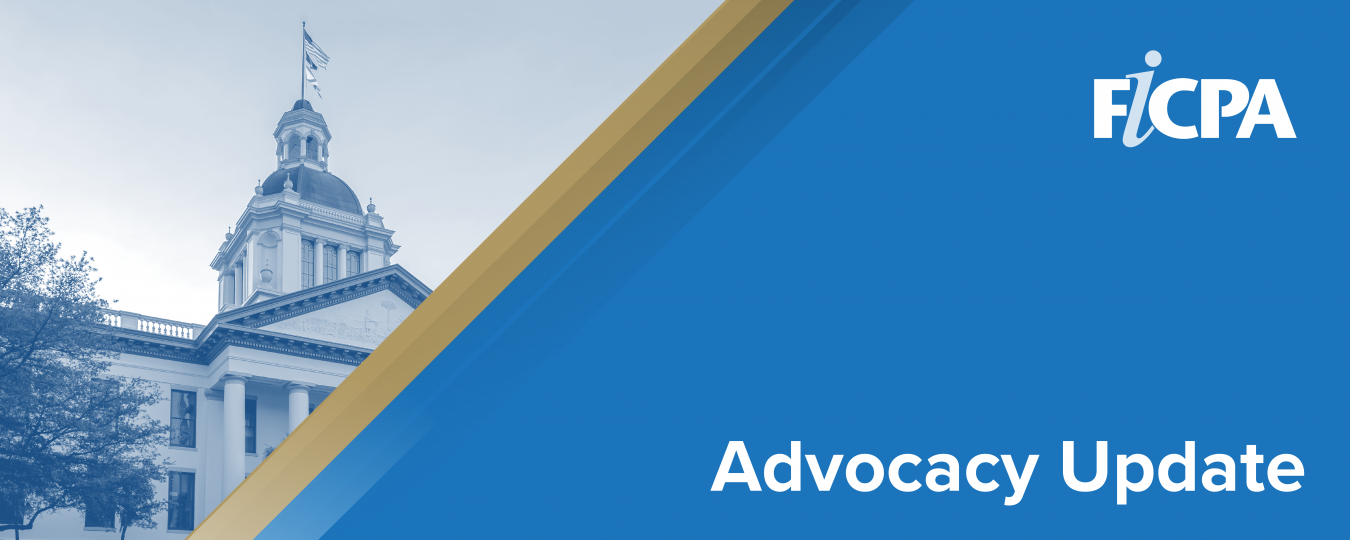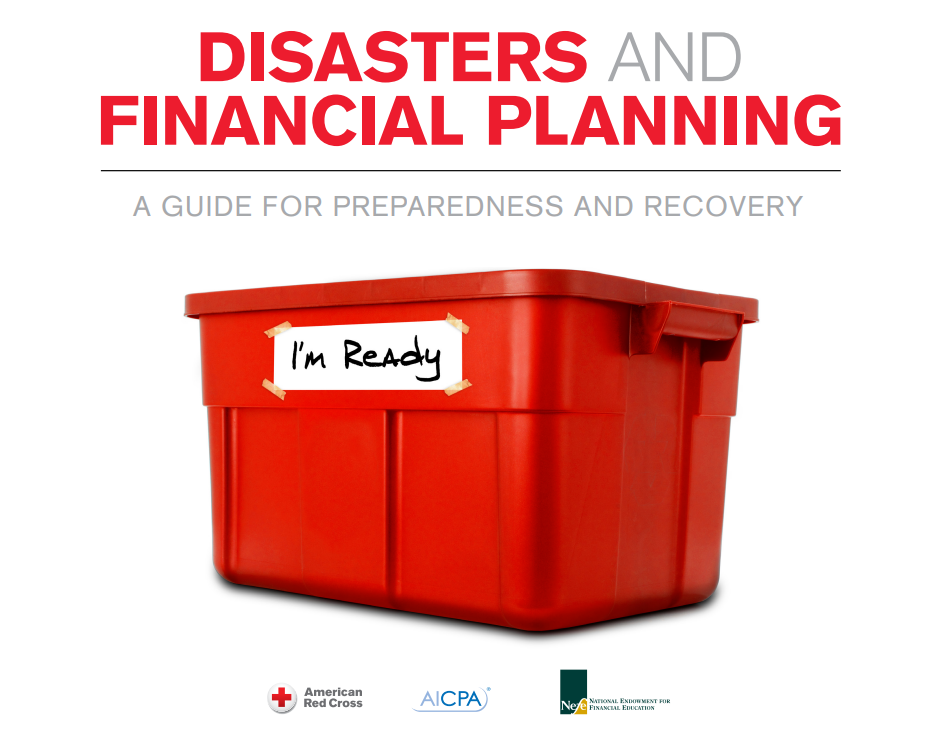
With hurricane season nearly here, the FICPA wants you to be as prepared as possible. Review these resources today to make sure you're ready for every eventuality in the weeks and months to come.

Florida's Disaster Preparedness Sales Tax Holiday (May 28 - June 10)
Beginning this Saturday, consumers can purchase qualifying disaster preparedness supplies exempt from tax during the 2022 Disaster Preparedness Sales Tax Holiday. Passed by the Florida Legislature and signed into law by Gov. Ron DeSantis, the sales tax holiday extends through June 10.
“Hurricane season can be a trying time, but preparing in advance for disasters is the best way to stay safe,” said Jim Zingale, Executive Director of the Florida Department of Revenue. “The 2022 Disaster Preparedness Sales Tax Holiday helps families stock up on essentials while saving money.”
The Department has created the 2022 Disaster Preparedness Sales Tax Holiday webpage with information and promotional materials for consumers, businesses, and other interested parties. Please visit the page at floridarevenue.com/disasterprep.
For more information, please see this Tax Information Publication (TIP), which outlines qualifying items ranging from cans or pouches of wet pet food selling for $2 each or less to portable generators selling for $1,000 or less. The sales tax holiday does not apply to the rental or repair of any of the qualifying items. Additionally, the sales tax holiday does not apply to sales in a theme park, entertainment complex, public lodging establishment or airport.
Disaster Preparedness: Before and After
The increasing number of natural disasters, the COVID-19 pandemic, unexpected events like the Surfside Condo collapse, and continuing legislative and financial changes are bringing about changes in the dynamics of tax and financial planning, especially for areas like Florida. Conventional planning methods and techniques may not serve the needs of clients for these changing circumstances.
This recorded session with Gerard Schreiber looks at the considerations for practitioners in analyzing client needs and offer considerations for future planning.
You'll also hear from Michael Moran of the Florida PACE Funding Agency, as he explores the “perception vs. reality” of Property Assessed Clean Energy (PACE) financing.
A Guide for CPAs to Providing Disaster Assistance
Natural disasters are occurring more frequently, and CPA offices are having to deal with the consequences in personal, business, and client matters.
This guide from Schreiber & Schreiber is intended to provide assistance to CPAs working through the maze of disaster-related matters that will affect their personal and professional lives.
AICPA Benevolent Fund
The AICPA Benevolent Fund was created to support AICPA members with short-term personal financial needs. For example, the Fund can potentially help individuals who are experiencing temporary loss of income, increases in cost of living, insurance deductibles, and replacement costs associated with natural disasters. The Fund focuses its assistance on individual members (rather than businesses), and we hope you’ll help spread the word to affected CPAs.
Kati McDaniels and Melissa Parker are the administrators of the Fund. Please visit the AICPA Benevolent Fund website to download an application for assistance, or reach out to Kati or Melissa with questions at benevolent_fund@aicpa.org.

Red Cross Disaster Recovery Guide
Every disaster situation is unique, but there are some general crisis mitigation actions that all households should take to prepare for unexpected challenges.
The Red Cross' "Disasters and Financial Planning: A Guide for Preparedness and Recovery" was created in partnership with the AICPA and provides suggestions for and information about:
- Developing a general family disaster plan, including creating a disaster supplies kit, assessing your property’s disaster vulnerability and creating evacuation and communication plans.
- Protecting your property, including having adequate insurance and implementing mitigation efforts.
- Protecting your health and life, including understanding what is and is not covered by health, disability and life insurance policies.
- Protecting your loved ones, including estate planning and creating a living will.
- Protecting your income, including managing debt and understanding government benefits after a disaster.
- Protecting your records, including what to keep and how to store it.
- Recovering from a disaster, including what to do on a financial basis in the event of a disaster
IRS: Disaster Resources to Help Taxpayers Weather Summer Storms
The arrival of summer also means the start of hurricane season. One way taxpayers can prepare for any type of natural disaster is by knowing what to do about important documents and paperwork that might be lost after a disaster.
It’s also good for taxpayers to know how to find out if the IRS is providing filing extensions or other tax relief due to the impact of a federally declared disaster. Below are links taxpayers can use to find IRS tax related disaster relief:
- Reconstructing Records After a Natural Disaster or Casualty Loss: This IRS.gov page helps people who are facing the challenge of reconstructing their financial records after a disaster. This may be essential for properly documenting a tax-deductible loss, supporting various tax-related transactions or getting federal assistance, or insurance reimbursement.
- Tax Relief in Disaster Situations: This page features links to resources that walk taxpayers through information that will help them after a disaster. This page also links to local news releases and frequently asked questions.
- Around the Nation: This page highlights news specific to local areas. This includes disaster relief and tax provisions that affect certain states.
- FAQs for Disaster Victims: From this page, users can link out to several different pages with FAQs, each about a specific topic to help people after a disaster.
- Publication 3067, IRS Disaster Assistance Federally Declared Disaster Area: This publication provides information to individuals and businesses affected by a federally-declared disaster. It also covers the assistance available to disaster victims.
- Publication 584, Casualty, Disaster, and Theft Loss Workbook: This workbook helps individual taxpayers figure their loss on personal-use property in the event of a disaster, casualty or theft.
- Publication 584-B, Business Casualty, Disaster, and Theft Loss Workbook: This workbook helps businesses figure their loss on business and income-producing property in the event of a disaster, casualty or theft.
- Publication 547, Casualties, Disasters and Thefts: This publication explains the tax treatment of casualties, thefts, and losses on deposits.